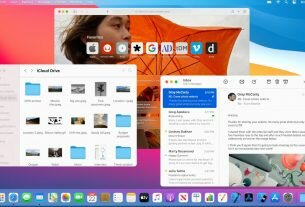Question or issue on macOS:
I would like to use ssh-agent to forward my keys into the docker image and pull from a private github repo.
I am using a slightly modified version of https://github.com/phusion/passenger-docker with boot2docker on Yosemite.
ssh-add -l ...key details boot2docker up
Then I use the command which I have seen in a number of places (i.e. https://gist.github.com/d11wtq/8699521):
docker run --rm -t -i -v $SSH_AUTH_SOCK:/ssh-agent -e SSH_AUTH_SOCK=/ssh-agent my_image /bin/bash
However it doesn’t seem to work:
[email protected]:/# ssh-add -l Could not open a connection to your authentication agent. [email protected]:/# eval `ssh-agent -s` Agent pid 19 [email protected]:/# ssh-add -l The agent has no identities. [email protected]:/# ssh [email protected] Warning: Permanently added the RSA host key for IP address '192.30.252.128' to the list of known hosts. Permission denied (publickey).
How to solve this problem?
Solution no. 1:
A one-liner:
Here’s how to set it up on Ubuntu 16 running a Debian Jessie image:
docker run --rm -it --name container_name \ -v $(dirname $SSH_AUTH_SOCK):$(dirname $SSH_AUTH_SOCK) \ -e SSH_AUTH_SOCK=$SSH_AUTH_SOCK my_image
https://techtip.tech.blog/2016/12/04/using-ssh-agent-forwarding-with-a-docker-container/
Solution no. 2:
I expanded on @wilwilson’s answer, and created a script that will setup agent forwarding in an OSX boot2docker environment.
https://gist.github.com/rcoup/53e8dee9f5ea27a51855
#!/bin/bash
# Use a unique ssh socket name per-invocation of this script
SSH_SOCK=boot2docker.$$.ssh.socket
# ssh into boot2docker with agent forwarding
ssh -i ~/.ssh/id_boot2docker \
-o StrictHostKeyChecking=no \
-o IdentitiesOnly=yes \
-o UserKnownHostsFile=/dev/null \
-o LogLevel=quiet \
-p 2022 [email protected] \
-A -M -S $SSH_SOCK -f -n \
tail -f /dev/null
# get the agent socket path from the boot2docker vm
B2D_AGENT_SOCK=$(ssh -S $SSH_SOCK [email protected] echo \$SSH_AUTH_SOCK)
# mount the socket (from the boot2docker vm) onto the docker container
# and set the ssh agent environment variable so ssh tools pick it up
docker run \
-v $B2D_AGENT_SOCK:/ssh-agent \
-e "SSH_AUTH_SOCK=/ssh-agent" \
"[email protected]"
# we're done; kill off the boot2docker ssh agent
ssh -S $SSH_SOCK -O exit [email protected]
Stick it in ~/bin/docker-run-ssh, chmod +x it, and use docker-run-ssh instead of docker run.
Solution no. 3:
Since version 2.2.0.0, docker for macOS allows users to access the host’s SSH agent inside containers.
Here’s an example command that let’s you do it:
docker run --rm -it \ -v /run/host-services/ssh-auth.sock:/ssh-agent \ -e SSH_AUTH_SOCK="/ssh-agent" \ my_image
Note that you have to mount the specific path (/run/host-services/ssh-auth.sock) instead of the path contained in $SSH_AUTH_SOCK environment variable, like you would do on linux hosts.
Solution no. 4:
I ran into a similar issue, and was able to make things pretty seamless by using ssh in master mode with a control socket and wrapping it all in a script like this:
#!/bin/sh ssh -i ~/.vagrant.d/insecure_private_key -p 2222 -A -M -S ssh.socket -f [email protected] tail -f /dev/null HOST_SSH_AUTH_SOCK=$(ssh -S ssh.socket [email protected] env | grep "SSH_AUTH_SOCK" | cut -f 2 -d =) docker run -v $HOST_SSH_AUTH_SOCK:/ssh-agent \ -e "SSH_AUTH_SOCK=/ssh-agent" \ -t hello-world "[email protected]" ssh -S ssh.socket -O exit [email protected]
Not the prettiest thing in the universe, but much better than manually keeping an SSH session open IMO.
Solution no. 5:
For me accessing ssh-agent to forward keys worked on OSX Mavericks and docker 1.5 as follows:
-
ssh into the boot2docker VM with
boot2docker ssh -A. Don’t forget to use option -A which enables forwarding of the authentication agent connection. -
Inside the boot2docker ssh session:
[email protected]:~$ echo $SSH_AUTH_SOCK /tmp/ssh-BRLb99Y69U/agent.7750
This session must be left open. Take note of the value of the SSH_AUTH_SOCK environmental variable.
-
In another OS X terminal issue the docker run command with the SSH_AUTH_SOCK value from step 2 as follows:
docker run --rm -t -i \ -v /tmp/ssh-BRLb99Y69U/agent.7750:/ssh-agent \ -e SSH_AUTH_SOCK=/ssh-agent my_image /bin/bash [email protected]:/# ssh-add -l 2048 6c:8e:82:08:74:33:78:61:f9:9a:74:1b:65:46:be:eb /Users/dev/.ssh/id_rsa (RSA)
I don’t really like the fact that I have to keep a boot2docker ssh session open to make this work, but until a better solution is found, this at least worked for me.
Solution no. 6:
By default, boot2docker shares only files under /Users. SSH_AUTH_SOCK is probably under /tmp so the -v mounts the agent of the VM, not the one from your mac.
If you setup your VirtualBox to share /tmp, it should be working.
Solution no. 7:
Socket forwarding doesn’t work on OS X yet. Here is a variation of @henrjk answer brought into 2019 using Docker for Mac instead of boot2docker which is now obsolete.
-
First run a ssh server in the container, with /tmp being on the exportable volume. Like this
docker run -v tmp:/tmp -v \ ${HOME}/.ssh/id_rsa.pub:/root/.ssh/authorized_keys:ro \ -d -p 2222:22 arvindr226/alpine-ssh -
Then ssh into this container with agent forwarding
ssh -A -p 2222 [email protected] -
Inside of that ssh session find out the current socket for ssh-agent
3f53fa1f5452:~# echo $SSH_AUTH_SOCK /tmp/ssh-9zjJcSa3DM/agent.7 -
Now you can run your real container. Just make sure to replace the value of SSH_AUTH_SOCK below, with the value you got in the step above
docker run -it -v tmp:/tmp \ -e SSH_AUTH_SOCK=/tmp/ssh-9zjJcSa3DM/agent.7 \ vladistan/ansible
Solution no. 8:
Could not open a connection to your authentication agent.
This error occurs when $SSH_AUTH_SOCK env var is set incorrectly on the host or not set at all. There are various workarounds you could try. My suggestion, however, is to dual-boot Linux and macOS.
Additional resources:
- Using SSH keys inside docker container – Related Question
- SSH and docker-compose – Blog post
- Build secrets and SSH forwarding in Docker 18.09 – Blog post



